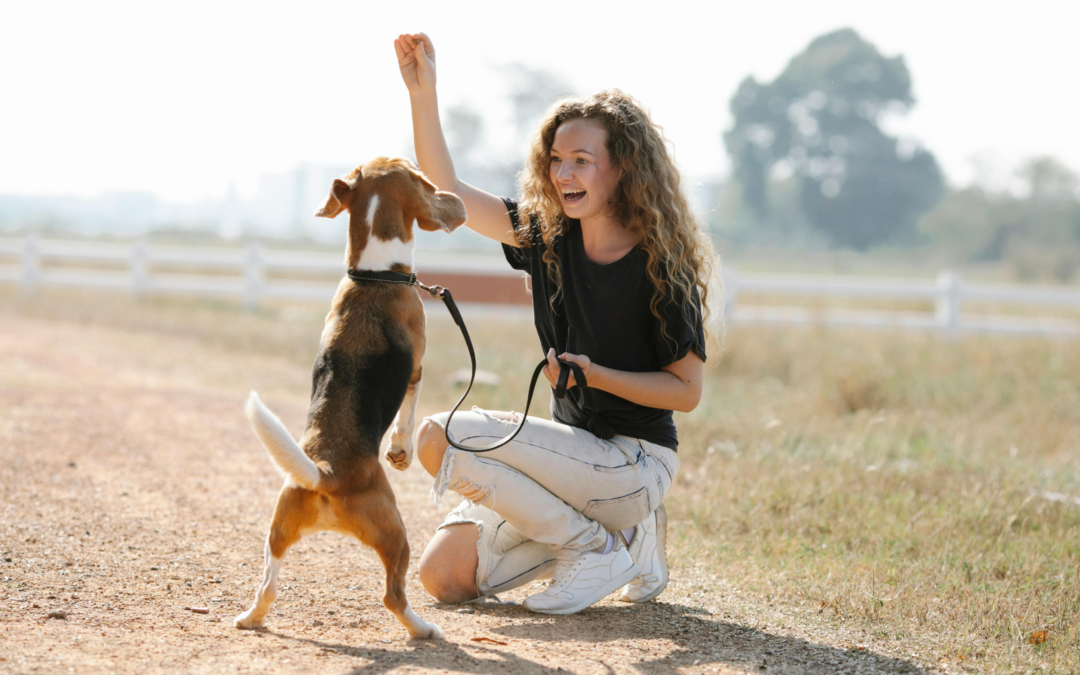Bringing a new furry friend into your life is exciting but what goes into this new role and how do you provide your dog with the necessary tools to thrive? Basic dog training plays a vital role in fostering a strong bond, ensuring their safety, and promoting responsible pet ownership. In this blog, we’ll explore practical tips for dog training and its benefits. So, let’s dive in and unleash the potential of your canine companion!
-
- Start Early and Be Consistent: Begin training your dog as soon as you bring them home. Puppies have a natural curiosity and eagerness to learn, making it the perfect time to shape their behavior. Establish a consistent training schedule and stick to it. Dogs thrive on routine, and consistent practice will help a ton!
- Use Positive Reinforcement: Positive reinforcement is a powerful tool in training your dog. Reward desired behaviors with treats, praise, and playtime. This positive approach encourages your dog to repeat those actions, making the training process enjoyable for both of you. Remember, a happy dog is a motivated learner!
- Teach Basic Commands: Start with essential commands such as sit, stay, come, and leave it. These commands provide a good foundation and ensure your dog’s safety. Break down each command into small steps, rewarding your dog for their progress. With patience and consistency, they’ll soon master these fundamental skills.
- Socialize Your Dog: Socialization is crucial for a well-rounded and confident dog. Introduce your pet to various environments, people, and other animals in a controlled manner. This exposure helps them develop good manners and adaptability. A well-socialized dog is more likely to be comfortable in new situations, reducing the risk of fear-based aggression or anxiety.
- Responsible Pet Ownership: Basic dog training is an integral part of responsible pet ownership. By investing time and effort into training, you create a harmonious and fulfilling relationship with your furry friend. Training ensures their safety, enhances their well-being, and promotes good behavior in public spaces. Responsible pet ownership also means being considerate of others and respecting shared spaces.
- Benefits for Pet Sitting: Basic training not only benefits you and your dog but it also makes pet sitting experiences smoother and more enjoyable. A well-trained dog is more likely to follow instructions and behave appropriately, making it easier for the sitter to handle them. This ensures that your pet receives the best care even when you’re away, reducing stress for you and your pet.
Dog training is a key component of responsible pet ownership. By following these dog training tips, you can create a strong foundation for your dog, enhance your bond, and ensure their safety. Training also promotes good behavior in public spaces and makes pet sitting experiences stress-free. Remember, training is a journey that requires patience, consistency, and positive reinforcement. Embrace the process, have fun and remember it will all be worth it in the end!


Recent Comments